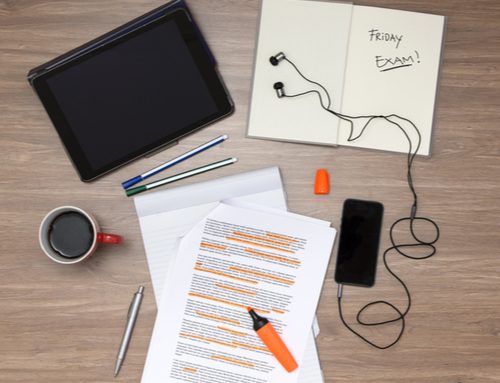
Written Communication, The Importance of Professionalism at School & on the Job Search
by Priscilla Beth Baker
As students head into summer internship/job fair season, it is important that they keep in mind the importance of what employers refer to as “soft skills.” This includes (but is not limited to): working with others, ethical judgment and decision making, analytical thinking, organizing and evaluating information, innovation and creativity, complex problem-solving, diversity awareness, and written and oral communication.
With regard to professional written communication specifically, it is imperative that students address professors and potential employers professionally. If the person being addressed has a doctorate, the salutation should be “Dr.” without exception. It is inappropriate (even insulting) to refer to a female faculty member or professional in the field with a Ph.D. as “Mrs.” or “Ms.” which happens surprisingly often (and let’s face it, their male counterparts are rarely if ever, referred to as “Mr.” in that same scenario). If unsure if an instructor or employer has a Ph.D., male or female, it’s best just to err on the side of caution and use “Dr.” The person’s response will correct the salutation if necessary.
In addition to a professional salutation, email messages should be clear, concise, specific, and proofread for errors. If it’s a particularly important email, it would not be a bad idea to have a friend, the campus Writing Center, or parent proofread it for clarity, consistency, and particularly tone. Students are far too casual in writing these days and that does not translate well to an academic or workplace setting. A lack of professionalism in writing implies the potential for a lack of professionalism in general. Best not to be eliminated right away for an opportunity before even getting out of the gate!
Get to the Point
Get to the point quickly – professors and employers are very busy and don’t need or want lengthy framing of the upcoming content. Students don’t need to start an email to a professor with, “I hope you are doing well so far this semester” or to an employer with, “I really like your company” before launching into their point. There is no need just to fill space – get to the point and practice an economy of effective, well-chosen words.
Follow up is key. If a student sends an email to a professor or employer and does not receive a response, it is appropriate to follow-up with a polite inquiry (for a professor, give them a few business days unless it is a time-sensitive matter; for an employer, wait at least 2 weeks). People get busy. Other more pressing tasks take precedence. Emails get buried. It’s fine to circle back as long as it is done politely rather than accusingly. Saying, “Did you get my email?” or “I am still waiting for you to respond to my email” can be read as antagonistic or condescending which is not at all what you want to convey.
Following up also includes expressing gratitude. If a professor or former boss has written a job or internship reference, students should absolutely follow up with a gracious email (or even better – a handwritten note and some chocolate!). This is especially true when said reference actually lands them a job.
I can’t count the number of times I have only found out incidentally that a student I wrote a reference for, got a position, yet I never heard from them personally about it. Few things are more annoying than this scenario because references are incredibly time-consuming and difficult to fit into our already-busy schedules. Students need to keep in mind that no one is required to write references for them – that is just not part of any of our job descriptions. We do it because we know the whole point of their being in school is to procure meaningful, lucrative employment and we want to celebrate that success with them. Acknowledging that we had even a small part in that achievement is extremely gratifying for us and also ensures that we are far more likely to say yes in the future when asked for additional references.
After meeting with recruiters at a job fair or after an interview, a personalized thank you via email or mail is not only necessary but I would say crucial in terms of keeping a student’s interest at the forefront of a potential employer’s mind. You might not realize that many companies get hundreds if not thousands of applicants for any one position.
Stand Out with Communication
Anything that can separate your child from the heap is a major advantage. Again, students should be concise and specific while also expressing sincerity – in their interest in that particular company and their confidence in what they can specifically bring to the table relative to that company’s needs. The overall message that ultimately needs to be conveyed, while avoiding a boasting or arrogant tone, is “You would be fools not to hire me even though I might not be able to tick every single one of your required boxes. I am committed and passionate about what you do and what I can do for you, and anything I don’t know yet, I can and will learn.”
Striking that tone, in writing, and in my interview, is exactly how I got my current job!
Pass on these great tips, tell your friends and like us on Facebook, Instagram, Twitter, and Pinterest. Find out more about how to use HaveUHeard as a great resource. Sign up for other great tips at haveuheard.com.








Leave A Comment